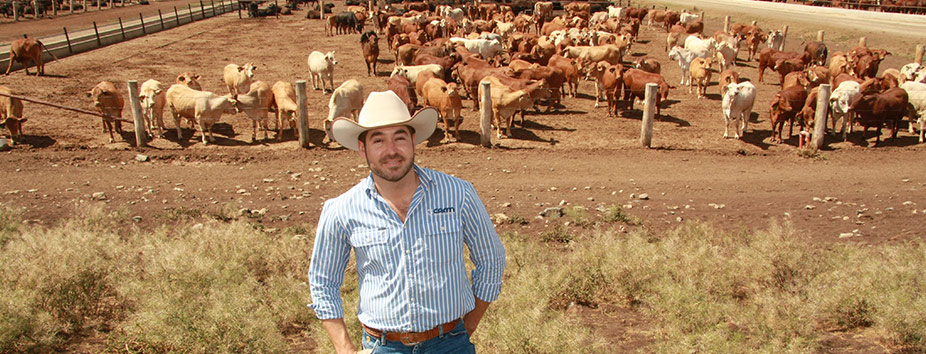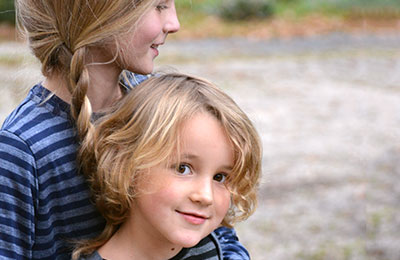Innovating for success

Meet two Australians who are making a success of running very different agribusinesses.

Meet two Australians who are making a success of running very different agribusinesses.
Words: Fleur Bainger
For most of us, 1980s tracksuits have been banished to the darkest corners of our memories. But Tasmanian clothing producer Eliza Tole fondly remembers the outfit given to her by her merino sheep-farming father: an ensemble made of Australian wool, created for the 1988 Winter Olympics.
"He's always been a big believer in trying to keep things local," Eliza says. It's a quality that has rubbed off: A frustrated search for local products is what inspired 34-year-old Eliza's recently launched woollen clothing label, Little Peeps Fleece.
As the name suggests, her garments are for children and they're made from 100 per cent Australian merino wool. What's more, everything from the buttons to the labels is manufactured in Australia.
Eliza's unisex designs, characterised by cute elbow patches and classic hues, are exactly what the mother-of-three once struggled to find for her little ones. "I was buying some woollen long-sleeved tops from New Zealand and I thought, 'I'd like to buy those here,'" she recalls.
 Little Peeps Fleece, largely an online business, went live in May 2014 following several years of hard work by the former agronomist who had no commercial experience in children's fashion. First she had to source fine, 18.5- to 19.5-micron woollen fabric that was available in small quantities. Then she Googled 'pattern makers' and found one in Melbourne that was happy to deal with a start-up company. Eliza then tracked down a label maker in Sydney and a button maker in Melbourne, and settled on a manufacturer in Devonport, an hour's drive from her Northern Midlands home.
Little Peeps Fleece, largely an online business, went live in May 2014 following several years of hard work by the former agronomist who had no commercial experience in children's fashion. First she had to source fine, 18.5- to 19.5-micron woollen fabric that was available in small quantities. Then she Googled 'pattern makers' and found one in Melbourne that was happy to deal with a start-up company. Eliza then tracked down a label maker in Sydney and a button maker in Melbourne, and settled on a manufacturer in Devonport, an hour's drive from her Northern Midlands home.
Eliza launched Little Peeps Fleece at Launceston's Agfest and marketed her wares in person, on social media and via her website, littlepeepsfleece.com.au. In 2015, Eliza aims to add more styles to her range and hopes to garner more consistent sales.
While Eliza's parents were involved in the wool industry, she and her husband, Robbie, raise prime lambs for meat and cultivate 300 hectares of potatoes, poppies and peas. The two businesses operate separately, but she says there are some similarities.
"In terms of buying locally or transporting, they're things that inhibit our farming business and have an impact on my clothing business, too."
In the nine years that Bryce Camm has been a part of his family business, he has tripled the size of its key asset. That's no small feat for any enterprise, but when you learn that the Camms' 10 farming properties stretch across nearly 500,000 hectares in Queensland, and that their main focus-a massive feedlot-turned off 38,000 head of cattle last year, the project takes on a whole new dimension.
Bryce is just 30 years old, but with his parents actively planning their retirement, he has been progressively taking on more responsibility. After completing a double degree in business administration and communications at Bond University in 2004, he returned home to manage the feedlot, which the family has run (on a much smaller scale) since the early '80s.
Nowadays, he oversees the entire group: an integrated beef supply chain that sees breeder country in Queensland's north complement backgrounding (post-weaning grass conditioning) properties in central Queensland, which prepare cattle to transition down to the feedlot in Darling Downs.
Running a herd of about 50,000, the Camms feedlot their own animals and custom-feed. Bryce says the feedlot's threefold growth can be attributed to two main things: "It's been driven by increases in the number of our cattle, but also by growing the custom-feeding side-we do a lot of wagyu and we also look after a big meat processor."
He says opening up a family business to the outside world is a great barometer of its success. "An integrated business such as ours, and any agricultural entity, is usually a low-margin business."
"There's no better test case to see if your operation is competing in the market than to get outside customers using it. "
The recipient of the 2014 Rabobank Emerging Leader Award, Bryce says his proposal to set up an advisory board three years ago has also played a major role in the business' growth. He says the board, which meets monthly and includes two independent directors, manages risk more actively than the business' traditional approach of spreading properties geographically and diversifying output across livestock and cropping.
"The board has provided good focus, particularly for a family business learning to treat it as a business and have more of that strategic direction. From a business planning point of view, that's become one of our foundation stones."